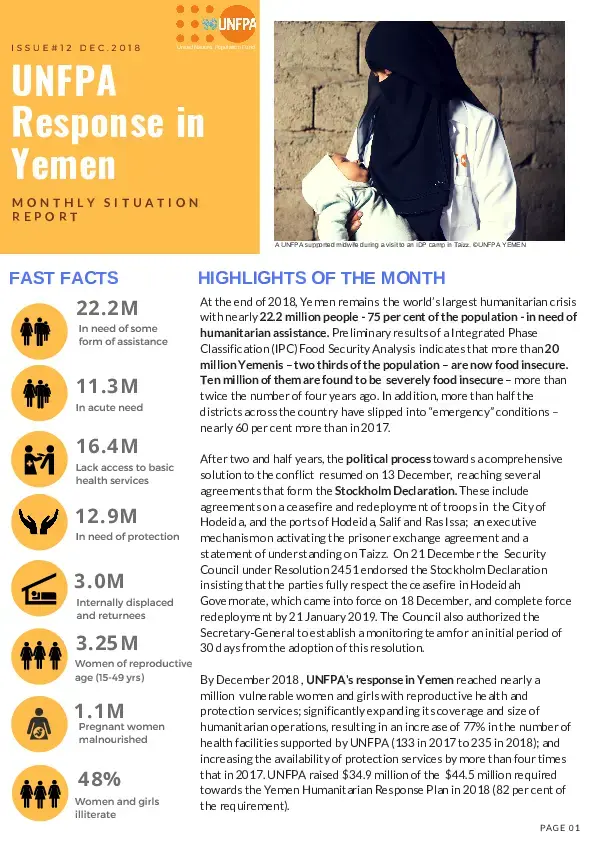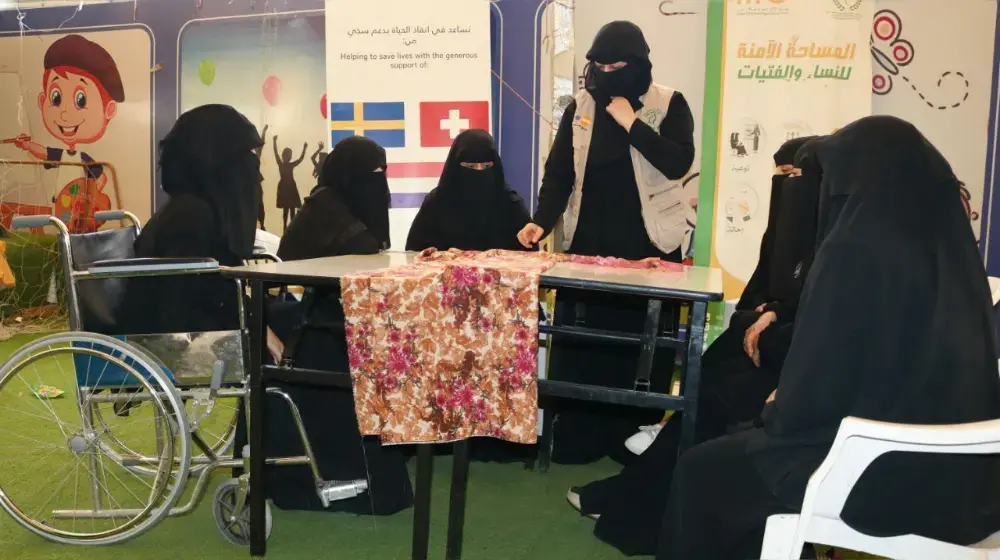At the end of 2018, Yemen remains the world’s largest humanitarian crisis with nearly 22.2 million people - 75 per cent of the population - in need of humanitarian assistance. Preliminary results of a Integrated Phase Classification (IPC) Food Security Analysis indicates that more than 20 million Yemenis – two thirds of the population – are now food insecure. Ten million of them are found to be severely food insecure – more than twice the number of four years ago. In addition, more than half the districts across the country have slipped into “emergency” conditions – nearly 60 per cent more than in 2017.
After two and half years, the political process towards a comprehensive solution to the conflict resumed on 13 December, reaching several agreements that form the Stockholm Declaration. These include agreements on a ceasefire and redeployment of troops in the City of Hodeida, and the ports of Hodeida, Salif and Ras Issa; an executive mechanism on activating the prisoner exchange agreement and a statement of understanding on Taizz. On 21 December the Security Council under Resolution 2451 endorsed the Stockholm Declaration insisting that the parties fully respect the ceasefire in Hodeidah Governorate, which came into force on 18 December, and complete force redeployment by 21 January 2019. The Council also authorized the Secretary-General to establish a monitoring team for an initial period of 30 days from the adoption of this resolution.
By December 2018 , UNFPA's response in Yemen reached nearly a million vulnerable women and girls with reproductive health and protection services; significantly expanding its coverage and size of humanitarian operations, resulting in an increase of 77% in the number of health facilities supported by UNFPA (133 in 2017 to 235 in 2018); and increasing the availability of protection services by more than four times that in 2017. UNFPA raised $34.9 million of the $44.5 million required towards the Yemen Humanitarian Response Plan in 2018 (82 per cent of the requirement).




